

E-Books → Understanding Indigenous Gender Relations and Violence Becoming Gender AWAke
Published by: voska89 on 31-01-2023, 17:13 |  0
0
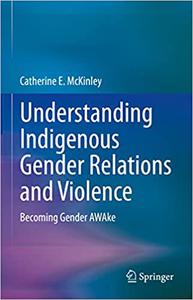
Catherine E. McKinley, "Understanding Indigenous Gender Relations and Violence: Becoming Gender AWAke"
English | ISBN: 303118582X | 2023 | 410 pages | PDF | 12 MB
This book focuses on the inequities that are persistently and disproportionately severe for Indigenous peoples. Gender and racial based inequities span from the home life to Indigenous women's wellness―including physical, mental, and social health. The conundrum of how and why Indigenous women―many of whom historically held respected and even held sacred status in many matrilineal and female-centered communities―now experience the highest rates of gendered based violence is focal to this work. Unlike Western European and colonial contexts, Indigenous societies tended to be organized in fundamentally distinct ways that were woman-centered and where gender roles and values were reportedly more egalitarian, fluid, flexible, inclusive, complementary, and harmonious. Understanding how Indigenous gender relations were targeted as a tool of patriarchal settler colonization and how this relates to women more broadly can be a key to unlocking gender liberation―a catalyst for readers to become '
E-Books → The Prior Consultation of Indigenous Peoples in Latin America Inside the Implementation Gap
Published by: voska89 on 28-01-2023, 07:38 |  0
0
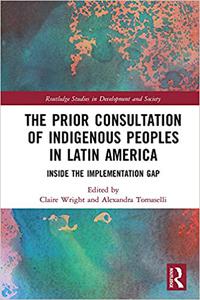
Claire Wright, "The Prior Consultation of Indigenous Peoples in Latin America: Inside the Implementation Gap "
English | ISBN: 1138488062 | 2019 | 294 pages | EPUB, PDF | 1048 KB + 6 MB
This book delves into the reasons behind and the consequences of the implementation gap regarding the right to prior consultation and the Free, Prior and Informed Consent (FPIC) of Indigenous Peoples in Latin America.
E-Books → On Savage Shores How Indigenous Americans Discovered Europe [Auidiobook]
Published by: voska89 on 25-01-2023, 15:32 |  0
0
![On Savage Shores How Indigenous Americans Discovered Europe [Auidiobook] On Savage Shores How Indigenous Americans Discovered Europe [Auidiobook]](https://i121.fastpic.org/big/2023/0125/40/8d6c6ae683b74172fbc5a0cf49530a40.jpeg)
Caroline Dodds Pennock (Author, Narrator), "On Savage Shores: How Indigenous Americans Discovered Europe"
English | ASIN: B0B2BZZ8VC | 2023 | MP3@64 kbps | ~10:03:00 | 285 MB
A landmark work of narrative history that shatters our previous Eurocentric understanding of the Age of Discovery by telling the story of the Indigenous Americans who journeyed across the Atlantic to Europe after 1492
We have long been taught to presume that modern global history began when the "Old World" encountered the "New", when Christopher Columbus "discovered" America in 1492. But, as Caroline Dodds Pennock conclusively shows in this groundbreaking book, for tens of thousands of Aztecs, Maya, Totonacs, Inuit and others-enslaved people, diplomats, explorers, servants, traders-the reverse was true: they discovered Europe. For them, Europe comprised savage shores, a land of riches and marvels, yet perplexing for its brutal disparities of wealth and quality of life, and its baffling beliefs.
E-Books → On Savage Shores How Indigenous Americans Discovered Europe
Published by: voska89 on 24-01-2023, 19:43 |  0
0
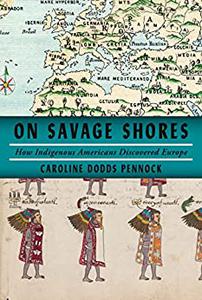
Caroline Dodds Pennock, "On Savage Shores: How Indigenous Americans Discovered Europe"
English | ISBN: 1524749265 | 2023 | EPUB | 320 pages | 40 MB
A landmark work of narrative history that shatters our previous Eurocentric understanding of the Age of Discovery by telling the story of the Indigenous Americans who journeyed across the Atlantic to Europe after 1492
E-Books → Indigenous Research Methodologies
Published by: voska89 on 22-01-2023, 19:46 |  0
0
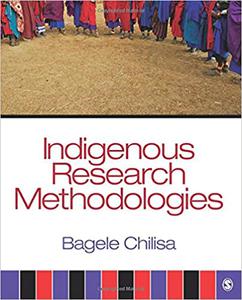
Bagele Chilisa, "Indigenous Research Methodologies"
English | 2011 | ISBN: 1412958822 | PDF | pages: 306 | 2.7 mb
Responding to increased emphasis in the classroom and the field on exposing students to diverse epistemologies, methods, and methodologies, Bagele Chilisa has written the first textbook that situates research in a larger, historical, cultural, and global context. With case studies from around the world, the book demonstrates the specific methodologies that are commensurate with the transformative paradigm of research and the historical and cultural traditions of third-world and indigenous peoples.
E-Books → Indigenous, Modern and Postcolonial Relations to Nature Negotiating the Environment
Published by: voska89 on 21-01-2023, 16:17 |  0
0
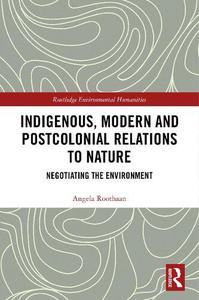
Indigenous, Modern and Postcolonial Relations to Nature: Negotiating the Environment By Angela Roothaan
2019 | 180 Pages | ISBN: 1138337773 | PDF | 2 MB
Indigenous, Modern and Postcolonial Relations to Nature contributes to the young field of intercultural philosophy by introducing the perspective of critical and postcolonial thinkers who have focused on systematic racism, power relations and the intersection of cultural identity and political struggle. Angela Roothaan discusses how initiatives to tackle environmental problems cross-nationally are often challenged by economic growth processes in postcolonial nations and further complicated by fights for land rights and self-determination of indigenous peoples. For these peoples, survival requires countering the scramble for resources and clashing with environmental organizations that aim to bring their lands under their own control. The author explores the epistemological and ontological clashes behind these problems. This volume brings more awareness of what structurally obstructs open exchange in philosophy world-wide, and shows that with respect to nature, we should first negotiate what the environment is to us humans, beyond cultural differences. It demonstrates how a globalizing philosophical discourse can fully include epistemological claims of spirit ontologies, while critically investigating the exclusive claim to knowledge of modern science and philosophy. This book will be of great interest to students and scholars of environmental philosophy, cultural anthropology, intercultural philosophy and postcolonial and critical theory.
E-Books → Fresh Banana Leaves Healing Indigenous Landscapes Through Indigenous Science [Audiobook]
Published by: voska89 on 21-01-2023, 11:31 |  0
0
![Fresh Banana Leaves Healing Indigenous Landscapes Through Indigenous Science [Audiobook] Fresh Banana Leaves Healing Indigenous Landscapes Through Indigenous Science [Audiobook]](https://i121.fastpic.org/big/2023/0121/6f/706797fd0b7f72e98dce91e232187a6f.jpeg)
Fresh Banana Leaves: Healing Indigenous Landscapes Through Indigenous Science (Audiobook)
English | ASIN: B09NWF6N8H | 2022 | 9 hours and 35 minutes | M4B@64 kbps | 264 MB
Author: Jessica Hernandez
Narrator: Stacy Gonzalez
An Indigenous environmental scientist breaks down why western conservationism isn't working - and offers Indigenous models informed by case studies, personal stories, and family histories that center the voices of Latin American women and land protectors. Despite the undeniable fact that Indigenous communities are among the most affected by climate devastation, Indigenous science is nowhere to be found in mainstream environmental policy or discourse. And while holistic land, water, and forest management practices born from millennia of Indigenous knowledge systems have much to teach all of us, Indigenous science has long been ignored, otherized, or perceived as "soft" - the product of a systematic, centuries-long campaign of racism, colonialism, extractive capitalism, and delegitimization.
E-Books → Indigenous Churches Anthropology of Christianity in Lowland South America
Published by: voska89 on 17-01-2023, 00:37 |  0
0
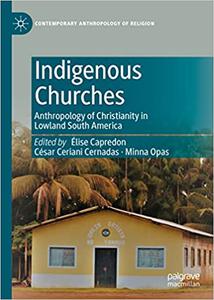
, "Indigenous Churches: Anthropology of Christianity in Lowland South America "
English | ISBN: 3031144937 | 2022 | 262 pages | PDF | 6 MB
This book raises the question of what an Indigenous church is and how its members define their ties of affiliation or separation. Establishing a pioneering dialogue between Amazonian and Gran Chaco studies on Indigenous Christianity, the contributions address historical processes, cosmological conceptions, ritual practices, leadership dynamics, and material formations involved in the creation and diversification of Indigenous churches. Instead of focusing on the study of missionary ideologies and praxis, the book explores Indigenous peoples' interpretations of Christianity and the institutional arrangements they make to create, expand, or dismantle their churches. In doing so, the volume offers a South American contribution to the theoretical project of the anthropology of Christianity, especially as it relates to the issue of denominationalism and inter-denominational relations.
E-Books → Indigenous Women and Violence Feminist Activist Research in Heightened States of Injustice
Published by: voska89 on 14-01-2023, 20:14 |  0
0
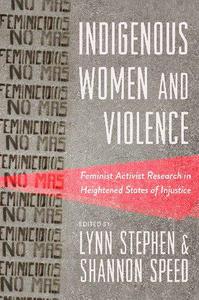
Indigenous Women and Violence: Feminist Activist Research in Heightened States of Injustice By Lynn Stephen (editor), Shannon Speed (editor)
2021 | 272 Pages | ISBN: 0816542627 | PDF | 7 MB
Indigenous Women and Violence offers an intimate view of how settler colonialism and other structural forms of power and inequality created accumulated violences in the lives of Indigenous women. This volume uncovers how these Indigenous women resist violence in Mexico, Central America, and the United States, centering on the topics of femicide, immigration, human rights violations, the criminal justice system, and Indigenous justice. Taking on the issues of our times, Indigenous Women and Violence calls for the deepening of collaborative ethnographies through community engagement and performing research as an embodied experience. This book brings together settler colonialism, feminist ethnography, collaborative and activist ethnography, emotional communities, and standpoint research to look at the links between structural, extreme, and everyday violences across time and space.Indigenous Women and Violence is built on engaging case studies that highlight the individual and collective struggles that Indigenous women face from the racial and gendered oppression that structures their lives. Gendered violence has always been a part of the genocidal and assimilationist projects of settler colonialism, and it remains so today. These structures-and the forms of violence inherent to them-are driving criminalization and victimization of Indigenous men and women, leading to escalating levels of assassination, incarceration, or transnational displacement of Indigenous people, and especially Indigenous women. This volume brings together the potent ethnographic research of eight scholars who have dedicated their careers to illuminating the ways in which Indigenous women have challenged communities, states, legal systems, and social movements to promote gender justice. The chapters in this book are engaged, feminist, collaborative, and activism focused, conveying powerful messages about the resilience and resistance of Indigenous women in the face of violence and systemic oppression. Contributors: R. Aída Hernández-Castillo, Morna Macleod, Mariana Mora, María Teresa Sierra, Shannon Speed, Lynn Stephen, Margo Tamez, Irma Alicia Velásquez Nimatuj
E-Books → Indigenous Rights and Colonial Subjecthood Protection and Reform in the Nineteenth-Century British Empire
Published by: voska89 on 9-01-2023, 17:14 |  0
0

Indigenous Rights and Colonial Subjecthood: Protection and Reform in the Nineteenth-Century British Empire By Amanda Nettelbeck
2019 | 240 Pages | ISBN: 1108471757 | PDF | 8 MB
Amanda Nettelbeck explores how policies designed to protect the civil rights of indigenous peoples across the British Empire were entwined with reforming them as governable colonial subjects. The nineteenth-century policy of 'Aboriginal protection' has usually been seen as a fleeting initiative of imperial humanitarianism, yet it sat within a larger set of legally empowered policies for regulating new or newly-mobile colonised peoples. Protection policies drew colonised peoples within the embrace of the law, managed colonial labour needs, and set conditions on mobility. Within this comparative frame, Nettelbeck traces how the imperative to protect indigenous rights represented more than an obligation to mitigate the impacts of colonialism and dispossession. It carried a far-reaching agenda of legal reform that arose from the need to manage colonised peoples in an Empire where the demands of humane governance jostled with colonial growth.



